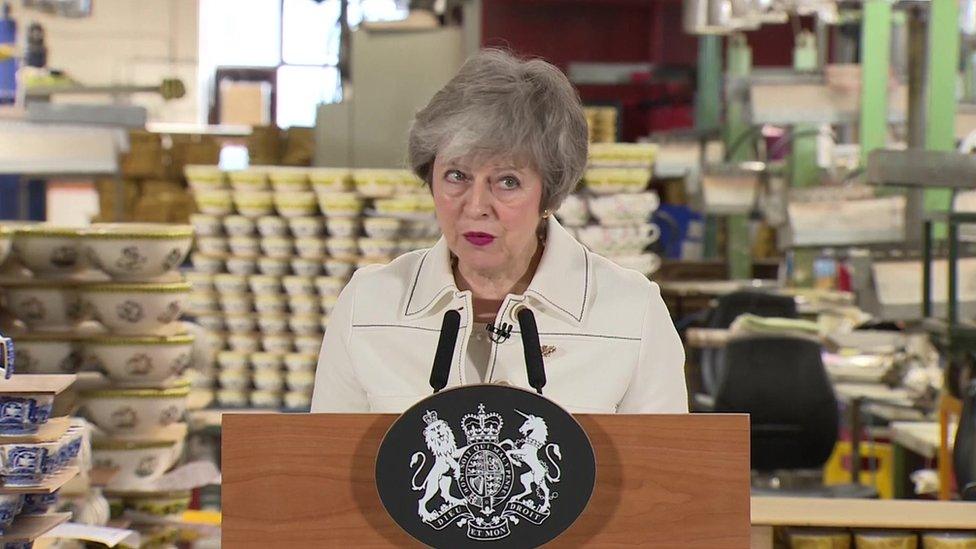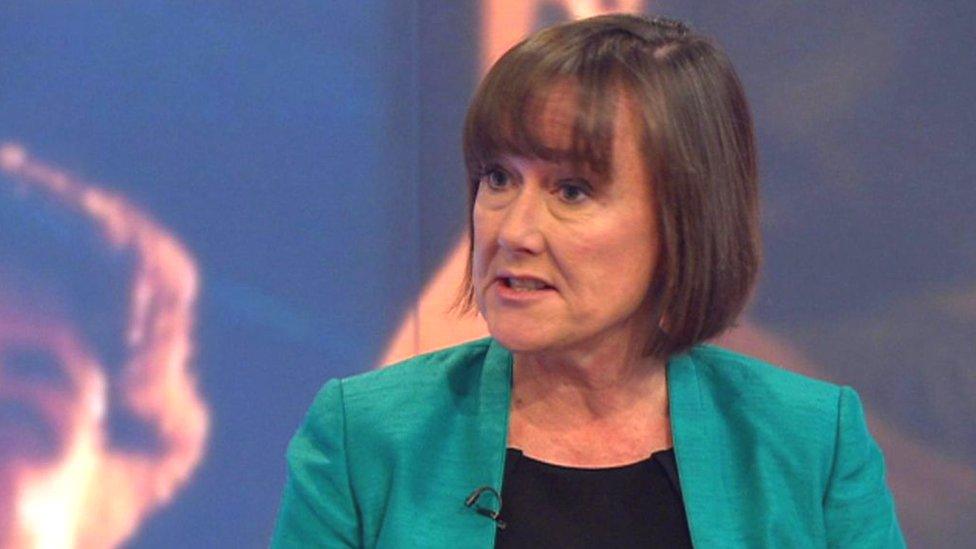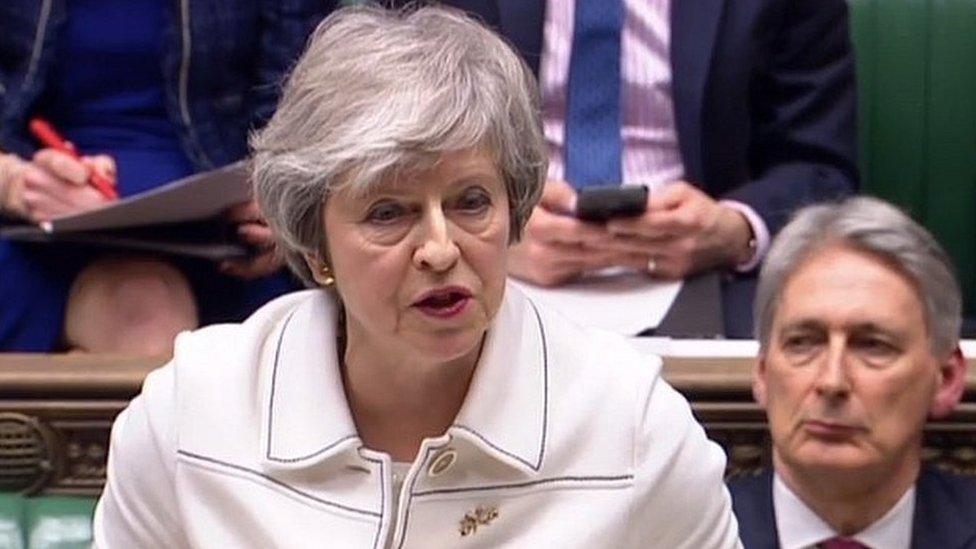Theresa May's 'hypocritical' assembly remark dropped from speech
- Published

Theresa May voted against the assembly in 1997
The prime minister has re-written a speech about Brexit following criticism it was factually inaccurate.
Theresa May had planned to say that both sides had accepted the result of the Welsh assembly referendum in 1997.
But she had voted against the creation of the institution following the devolution referendum.
Labour and Plaid Cymru politicians accused her of hypocrisy - and the line was dropped from the speech.
Instead, she said the result was accepted by parliament.
Mrs May warned of "paralysis in Parliament" if the deal is rejected and said trust in politics would suffer "catastrophic harm" if the UK did not leave the EU.
Members of the press had been told Mrs May, in Stoke-on-Trent, would say: "When the people of Wales voted by a margin of 0.3%, on a turnout of just over 50%, to endorse the creation of the Welsh Assembly, that result was accepted by both sides and the popular legitimacy of that institution has never seriously been questioned."
But when she gave the speech, she said that the result "was accepted by parliament".
Mrs May had, in 1997 after the referendum, voted against the legislation that enacted the assembly, together with other Conservatives.
Allow X content?
This article contains content provided by X. We ask for your permission before anything is loaded, as they may be using cookies and other technologies. You may want to read X’s cookie policy, external and privacy policy, external before accepting. To view this content choose ‘accept and continue’.
Tory MP Nigel Evans said during that debate that it would have been better if the percentage majority in favour "had been in double figures".
"That would have settled the issue once and for all, but it did not and it remains unsettled," he said.
The Conservative manifesto of 2005 also called for a further referendum on the assembly on expanding its powers, keeping it as it was or abolishing it.
Before the event Professor Roger Scully of Cardiff University said the result was actually won on a margin of 0.6%, rather than 0.3%, external - although the figure remained in the revised speech.

Jo Stevens said the briefed remarks exposed 'yet more utter hypocrisy from the PM'
First Minister Mark Drakeford said Rhodri Morgan had "reacted to the closeness of the result by reaching out to those opposed to the creation of the National Assembly and worked to establish its legitimacy in their eyes".
"The success of that approach by Rhodri Morgan and Carwyn Jones was borne out in the emphatic majority to extend the National Assembly's powers in 2011," he said.
"It's hard to imagine a more different approach to that taken by Mrs May towards the EU referendum."

Analysis by BBC Reality Check
The Conservatives didn't support the result of Labour's 1997 referendum on Welsh devolution when the House of Commons voted on implementing it.
At the second reading of the Government of Wales Bill - when the broad principle of the legislation was discussed - 139 MPs opposed it, external.
Most of these were Conservatives, with Mrs May, then a new MP, among them.
Constitutional affairs spokesman Liam Fox later said: "The low turnout was one of the factors that undermined the referendum in Wales."
But the bill passed into law in 1998 and the assembly - with powers relating to health, agriculture, fisheries, education, housing, highways and some other areas - was created the next year.

'Very strange'
Labour MP for Cardiff Central Jo Stevens said the development had exposed "yet more utter hypocrisy from the PM".
Alun Davies, a Labour AM, said the briefed remarks showed "ignorance and incompetence in equal measure".
"It is a perfect metaphor for Brexit," he added.
Prior to the speech Liz Saville-Roberts, Plaid Cymru MP, said: "Unlike the unicorns of the Brexit referendum, the 1997 devolution vote was a clear question, with a clear outcome and clear consequences. The only party to attack its legitimacy was her party - this is hypocrisy of the highest order.
"Mrs May's revisionist history shows a disregard for Wales, devolution and democracy."
Former Wales Office special advisor Lauren McEvatt said on Twitter that "stopping howlers like this is a pretty big reason (why) the Wales Office is still around".
"No. 10 should have made use of them," she said.
- Published14 January 2019
